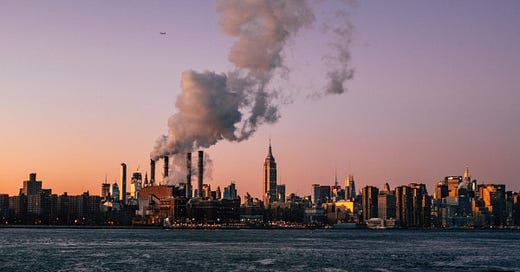The West's Greenhouse Gas Emissions Only Matter a Little
But our climate policies matter a lot
Americans have a hard time accepting that we’re not always at the center of things. I’m susceptible to it; I get furious when I have to put my address into an online form, and the drop-down menu for “country” doesn’t list “United States” first. Really? You’re seriously going to list these D-list countries before the country that went to the moon, or that at least convincingly faked it pre-CGI, which is still pretty impressive? Come on, Etsy, I’m buying a velvet portrait of Dolly Parton -- what fucking country do you think I’m from?

Maybe that’s why Americans sometimes don’t seem to realize that climate change isn’t really about us. The Green New Deal, had it happened instead of being defeated by a narrow 57-0 margin, would have sought to reduce US greenhouse gas emissions to zero within a ten year timeframe. This may be a hot take, but if that had happened…so what? Our net GHG emissions are about 11 percent of the global total and shrinking fast as a share of the whole. I’m reluctant to bring this up, because “fuck it, it’s not up to us, let’s get drunk and crank the AC” is an argument made by climate change defeatists everywhere in the world. That’s not the point I want to make. The point I want to make is that how much we reduce our emissions matters less than how we reduce them.




